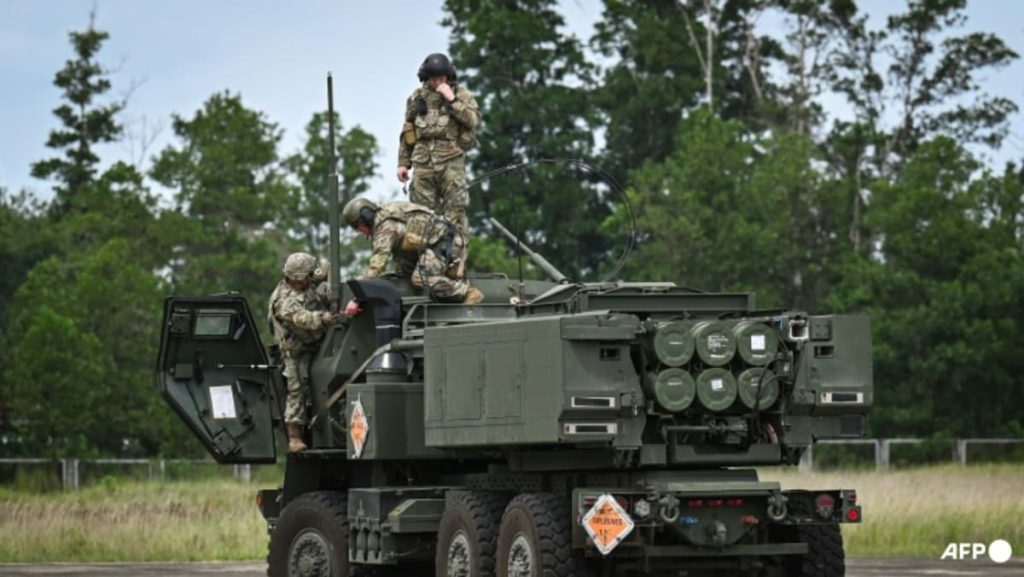Maritime confrontations between China and the Philippines have sparked concerns of a larger conflict involving the United States and other allies. Recently, the defence ministers of the Philippines, the United States, Japan, and Australia met in Hawaii to express their strong opposition to China’s “dangerous and destabilising conduct” in the South China Sea. They discussed enhancing defence cooperation and supporting states upholding their rights in the region.
During the Balikatan exercises, US forces launched HIMARS precision rockets into the South China Sea from Palawan, a major Philippine island near the disputed Spratly Islands. The US Marine Corps described this as a drill to practice swiftly deploying the missile system along the Philippine coast to protect the country’s maritime interests. These exercises are seen as a deterrent measure amidst escalating tensions in the region.
The Philippines-China conflict coincides with heightened tensions between Beijing and Taipei, as Taiwan is preparing to inaugurate a new president viewed by China as a separatist threat. Taiwan’s defence ministry reported the presence of 26 Chinese aircraft and five naval vessels near the island. Military exercises are seen as a means of deterrence, with Philippine Foreign Secretary Enrique Manalo emphasizing the importance of simulating scenarios to prevent the need for actual action.
The joint statement issued by the defence ministers highlighted the need to address China’s provocative actions in the South China Sea, which have raised concerns about regional stability. The four allies discussed opportunities for enhancing defence cooperation and supporting states asserting their rights in the disputed waters. The US’s participation in military exercises with the Philippines reflects a commitment to safeguarding maritime security in the region.
The rapid deployment of missile systems and joint military exercises demonstrate a readiness to defend against potential threats in the South China Sea. As tensions escalate between various countries, including China, the US, and the Philippines, there are growing concerns about the risk of a broader conflict. Working together with allies to uphold international law and freedom of navigation in the region is crucial to maintaining stability and security.
Ultimately, the recent actions and statements from the Philippines, the United States, Japan, and Australia reflect shared concerns about China’s activities in the South China Sea. By coordinating defence efforts and conducting military exercises, these countries aim to deter further aggression and protect their interests in the region. The focus on supporting states exercising their rights in the disputed waters underscores the importance of upholding the rule of law and preventing destabilising conduct that could lead to conflict.













